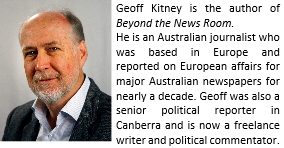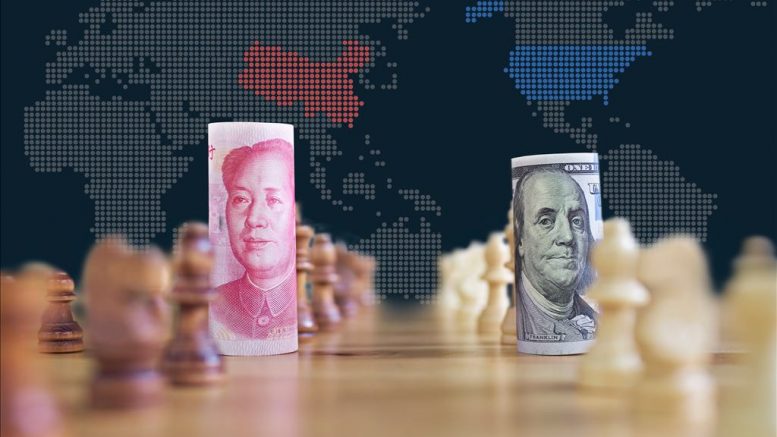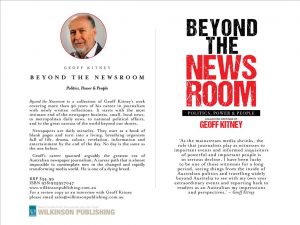Trade relations are testing business leaders everywhere but particularly those whose governments are strongly aligned with the United States, Geoff Kitney writes.
Boris Johnson’s China policy journey has come a long way since his visit to Beijing for the closing ceremony of the 2008 Olympic Games in Beijing.
As the mayor of London, the city next in line to host the Games, Johnson whooped it up, with typical boofish banter, lavishing praise on the Chinese but promising “an even better games” than Beijing’s, including “bringing ping-pong home to where it was invented”. Ping-pong, he said, had British origins, not Chinese. It was first played on the dining tables of England, he said, but was called “whiff whaff”.
Johnson’s Olympics-inspired connection to China consolidated in the years following that visit, to the point at which the then Prime Minister David Cameron declared the beginning of a “new, golden era” of British-Sino relations and Johnson declared himself a “Sinophile”.
Now, just over a year into Johnson’s term as Prime Minister, British-Sino relations have deteriorated markedly. Johnson has morphed into a China hawk.
The UK has put its long march towards a deeper economic relationship with China into reverse, suddenly seeing threat, not opportunity. A relationship which seemed to be on a sound footing for so long has run into a swamp of difficult issues, with unpredictable consequences for the UK at a time when the last thing it needs is more uncertainty about its future.
The uncertainty poses big challenges for the British business community, urged by government for decades to see China as, in David Cameron’s words, “a golden opportunity” for investment, partnerships and growth and now told to see China as untrustworthy.
But they are not alone.
The China conundrum is testing business leaders everywhere, but particularly those whose governments are strongly aligned with the United States and especially those with important strategic and intelligence relationships with the US.
Canada, Australia and New Zealand – which with the US and the UK form the so-called “Five Eyes” strategic and security intelligence sharing network – are being pressed by the US to commit to a rapidly intensifying US policy of isolating and containing China. Key to that is an expectation by the US that its allies will reduce their economic dependence on China.
With China the UK’s sixth largest export market and fourth largest source of imports – rankings which have soared in the past 10 years – this is a big ask. Brexit compounds the problem because China was to be a vital part of the new free trade landscape in the wake of the loss of access to the EU Single Market.
Australia ‘has a very important relationship with China and we have no intention of injuring it’.
But if this is a big problem for the UK, it is an even bigger one for Australia. Trade with China for Australia is twice as important to the Australian economy as trade with China is to the UK economy. Australia’s dependence on China is on another dimension compared to the UK’s.
The economic relationship with China was by far the major reason that Australia enjoyed nearly three decades of continuous prosperity, without a recession since 1990-91, even when the rest of the world slumped as a result of the Global Financial Crisis in 2008.
The impact of the Covid pandemic and its associated lockdowns has resulted in a 7 per cent contraction in the first half of 2020, although Chinese demand for Australian raw materials has continued to be strong and helped soften the economic blow of Covid. Chinese demand is also expected to help the economy’s post-Covid recovery.
So, when US Secretary of State Mike Pompeo said in a recent speech in London that the US expected its allies to “begin to wean off the Chinese economic teat” and avoid economic over-reliance on China those words echoed especially loudly in Australia.
This was one of a number of exhortations from the Trump administration to western nations to pull back from their China relationships to contribute to the US’s effort to stem the rise of Chinese economic power and, with it, its global influence.
The decisions of the UK and Australian governments to block China’s communications giant Huawei from participation in the roll-out of their 5G-next generation communications infrastructure are now being seen as just a small down-payment on their obligations to the US in its strident anti-China strategic shift.
Strategic analysts point out that the economic rise of China is inexorable and, with it, China’s demands for greater influence in world affairs.
With increasing talk of a new “Cold War” looming, US allies are increasingly recognising that they are being pushed towards having to making a choice between their strategic relationship and the western values of the United States and their economic relationship with Communist China.
Australian governments have insisted, as tensions between the US and China have grown, that Australia can navigate the fine line between these competing interests.
At formal talks in Washington recently Australian ministers pushed back from the US agenda, saying at a press conference after the talks that Australia “has a very important relationship with China and we have no intention of injuring it”.
But the relationship had already been injured. At the strong urging of the US, Australia took the lead in publicly demanding that China explain and account for the origins of the Covid virus. China reacted angrily. Tariffs on agricultural exports were soon imposed, amid warnings from Chinese diplomats that Australia should be careful about becoming a US puppet.
None-too-subtle warnings about the economic risks that Australia would be taking by bowing to US demands for loyalty have followed. Chinese students and tourists considering going to Australia were given official warnings about heightened risks of racist attacks.
With many in Australian businesses involved in trade with China – from huge resources companies, to universities (which are highly dependent on fees paid by visiting Chinese students), to manufacturers of high quality food products much in demand in China, to tourist operators for whom Chinese visitors provide a rich source of revenue – the thought of a Sino-US Cold War in which Australia is forced to side with the US is a futuristic nightmare.
Undoubtedly in the UK, where China had been seen as a potentially rich trading opportunity in the post-EU era, similar uncertainties are growing.
Business is nervously awaiting the November 3 US election, believing that the result might change the dynamics of the US-China rivalry. Donald Trump’s defeat, it is argued, should see the US adopt a less bellicose attitude to China and to US demands of its allies in their relationships with China.
But it may not be that simple.
Business is nervously awaiting the November 3 US election, believing that the result might change the dynamics of the US-China rivalry.
Strategic analysts point out that the economic rise of China is inexorable and, with it, China’s demands for greater influence in world affairs. This will especially be true in Asia where, they warn, the US is almost inevitably going to become less influential. For countries like Australia, this has profound implications.
Even if Australia were forced to choose and gave priority to its security relationship with the US over its economic relationship with China, some analysts say that future US administrations may not be able to provide the absolute security guarantee for which Australia hoped, especially if the US trend towards looking more inward and less global continues, regardless of who is president.
Brexit and the post-EU world that the UK will have to deal with is becoming increasingly complicated and will pose big challenges for UK governments.
But for those in the UK and elsewhere who not so long ago might have looked at Australia with envy and thought the Lucky Country had so little to be concerned about compared to the UK, it is time to take another look. It has suddenly become a much more complicated story.
Headline image credit: allensima/Shutterstock.com






